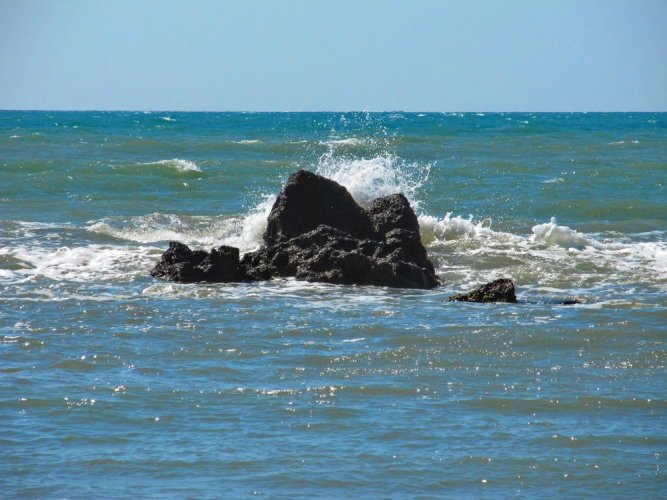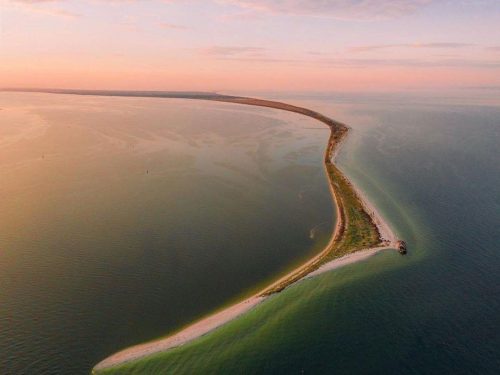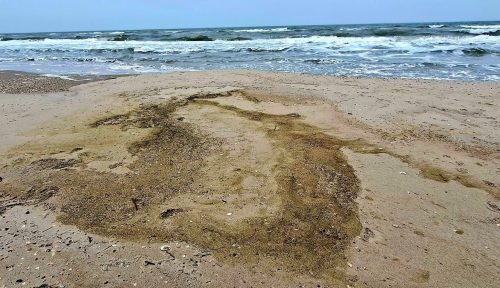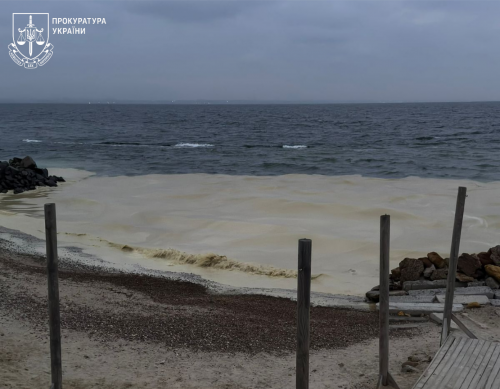On the last day of October, the International Day of the Black Sea is traditionally celebrated – not only a valuable natural object, but also an ecosystem that constantly suffers from environmental problems and anthropogenic influences, and from 2022, from the consequences of the Russian-Ukrainian war.
EcoPolitics has gathered information about the history of this day, the problems of the Black Sea, the consequences of war for this water body and the main steps we can take to protect it.
The history of the International Black Sea Day
International Black Sea Day was started in 1996. On October 31 of that year, 6 coastal states signed the Strategic Action Plan for the Protection and Restoration of this component of the world ocean. Signed by Ukraine, Bulgaria, Georgia, Romania, Russia and Turkey, this treaty defined specific measures to reduce pollution, preserve biodiversity and control fishing. Since then, October 31 has become a day when all the countries surrounding the Black Sea unite for its protection.
A brief description and unique features of this sea
The Black Sea is an inland sea between Europe and Asia, which washes the coasts of 6 states. It is unique due to its low salt content and specific composition of flora and fauna. It serves as a home for about 2,000 species of living organisms, including rare species that are now under threat of extinction.
Main ecological problems of the Black Sea
In recent decades, the Black Sea has faced a number of environmental problems. Key threats include:
- Water pollution.
The Black Sea suffers from domestic and industrial waste that contains harmful chemicals, heavy metals and plastic.
- Eutrophication.
A large amount of fertilizers and organic substances entering the sea from rivers causes rapid blooms of algae. This leads to "dead zones" – places where life is practically impossible.
- Illegal fishing.
Overfishing in the Black Sea threatens the existence of many species, including rare and commercially important fish populations.
- Climate change.
Increases in water temperature and acidity, changes in current directions, and increased storms have a direct negative impact on the marine ecosystem.
- Military actions.
Since 2022, after the start of the Russian-Ukrainian war, the Black Sea has become the site of numerous hostilities, which has caused even greater damage to the ecosystem. Toxic substances from explosions fall into the water. Destruction of military infrastructure and damage to ships cause massive oil spills that pollute the sea and pose a threat to marine life.
- Destruction of the Kakhovskaya HPP dam and its consequences.
On June 6, 2023, the occupiers blew up the Kakhovskaya HPP dam. This caused a catastrophic spill of water, which had serious consequences for the ecosystem of the Black Sea. Along with the flow of water, large amounts of pesticides, chemicals and other harmful pollutants accumulated in the reservoir for decades entered the sea. This destruction caused an increase in the level of pollution in the northwestern part of the sea, which affected the biodiversity of the region.
How to save the Black Sea: ways to protect and restore
In order to preserve the Black Sea for future generations, comprehensive measures to protect and restore its ecosystem are necessary. Among the main steps:
- Reducing pollution.
Cleaning industrial effluents and establishing strict environmental standards for businesses can help reduce the amount of harmful substances entering the sea.
- Control over fishing.
Fishing quotas need to be implemented to limit overfishing and ensure the recovery of fish populations.
- Protection of coastal areas.
These may include the creation of new conservation areas and restrictions on development.
- Involvement of the local population.
Ecotourism and the involvement of local residents in the protection of marine resources have great potential. People who live on the coast of the Black Sea can have a significant impact on its preservation if they participate in cleaning the coastline and promoting ecological culture.
- International cooperation.
Successful protection of the Black Sea is possible only if all the countries of the basin cooperate closely. It is important that each of the riparian countries adheres to the agreements and participates in joint initiatives.
International Black Sea Day reminds us once again that protecting this unique body of water is our shared responsibility. Taking care of the sea, reducing its pollution, rational fishing and fighting the consequences of war are important steps that can save the marine ecosystem for future generations.
In July, EcoPolitic reported that in the Black Sea near Odessa there is a lot of fish , like never before.





